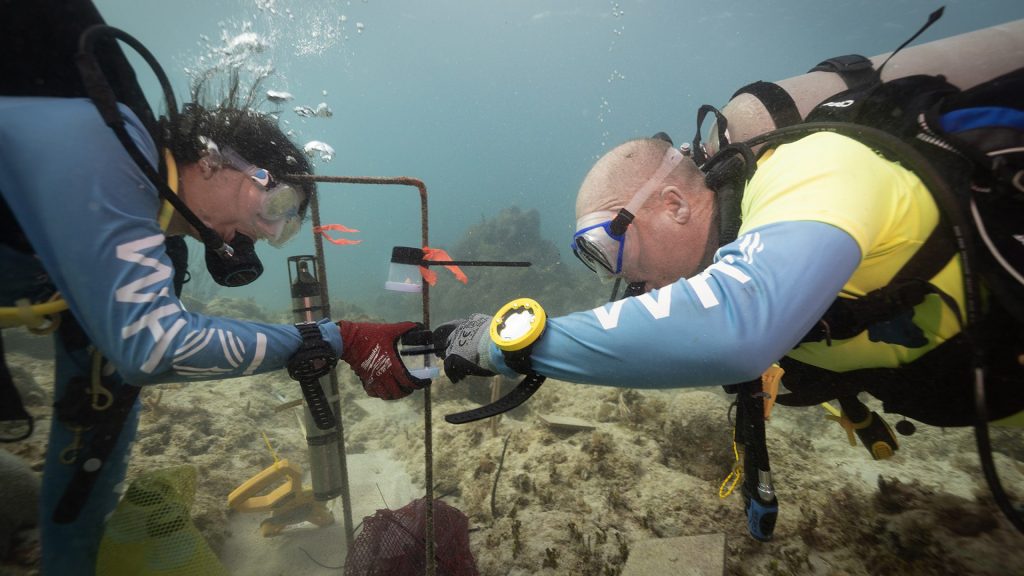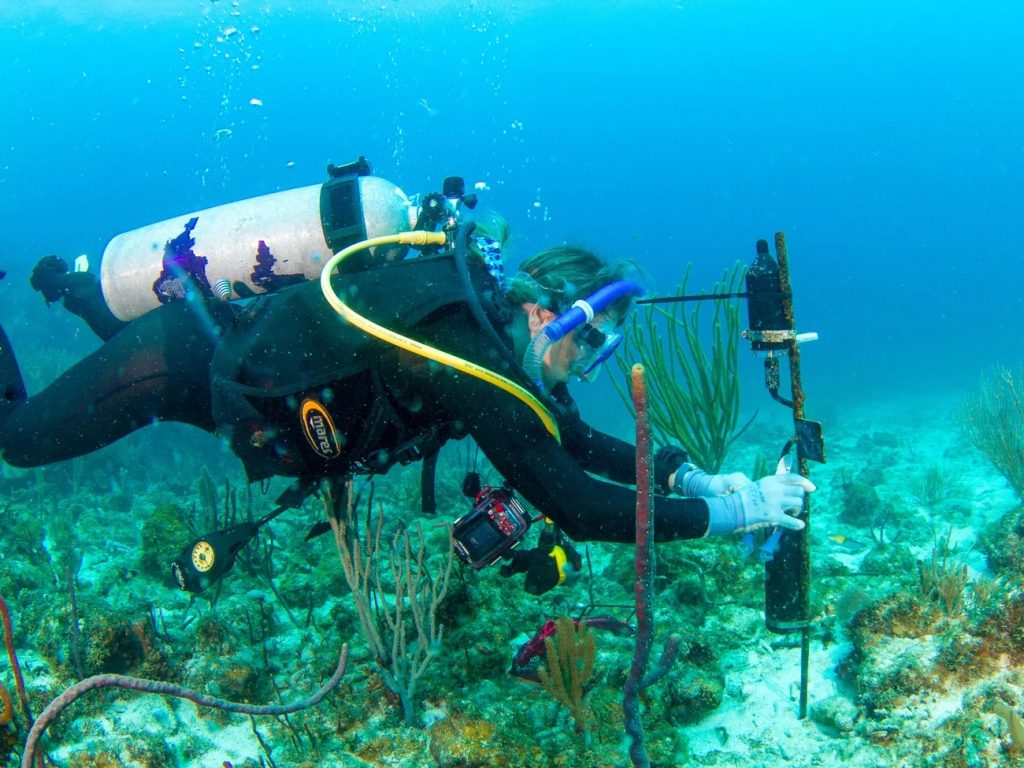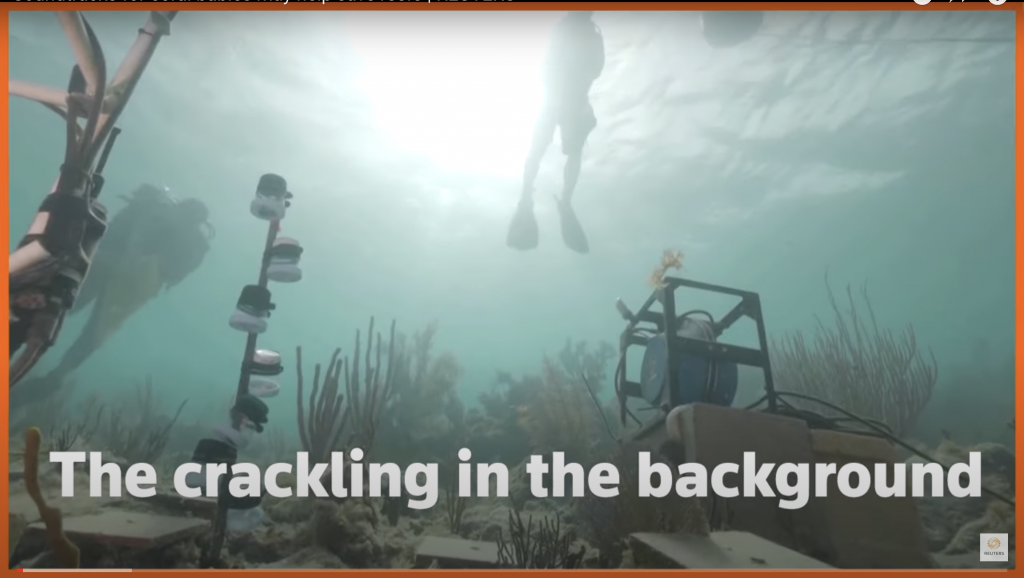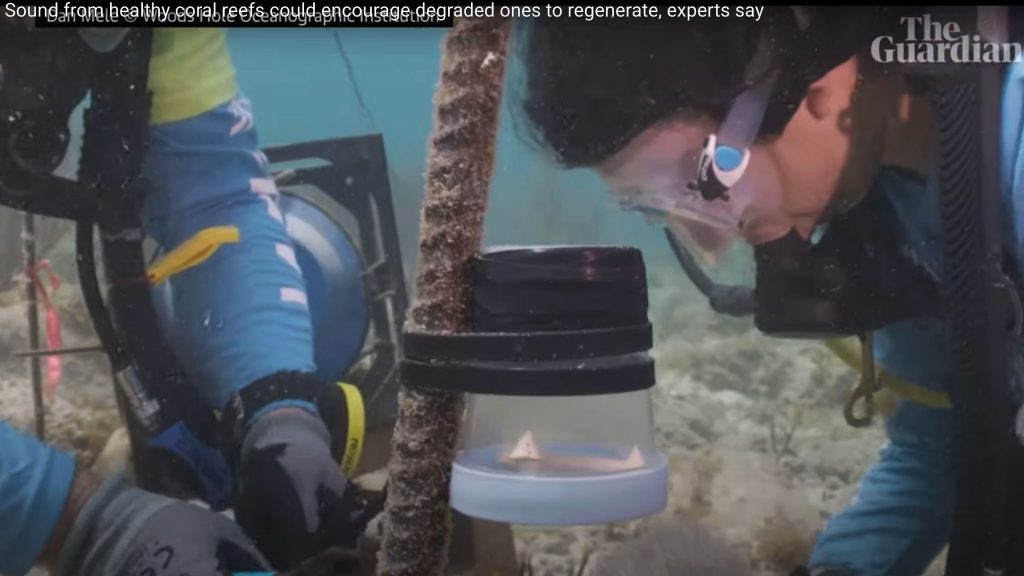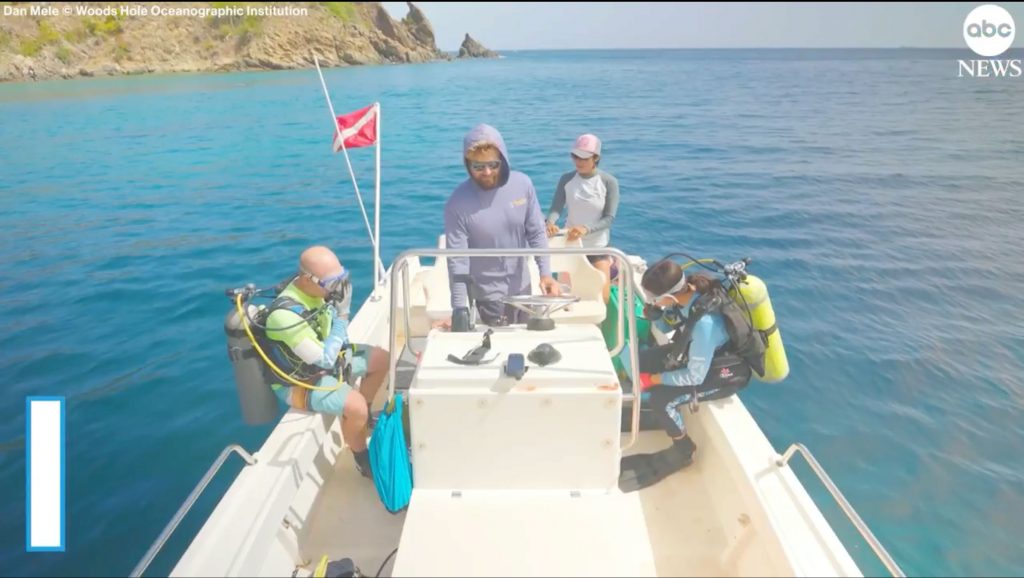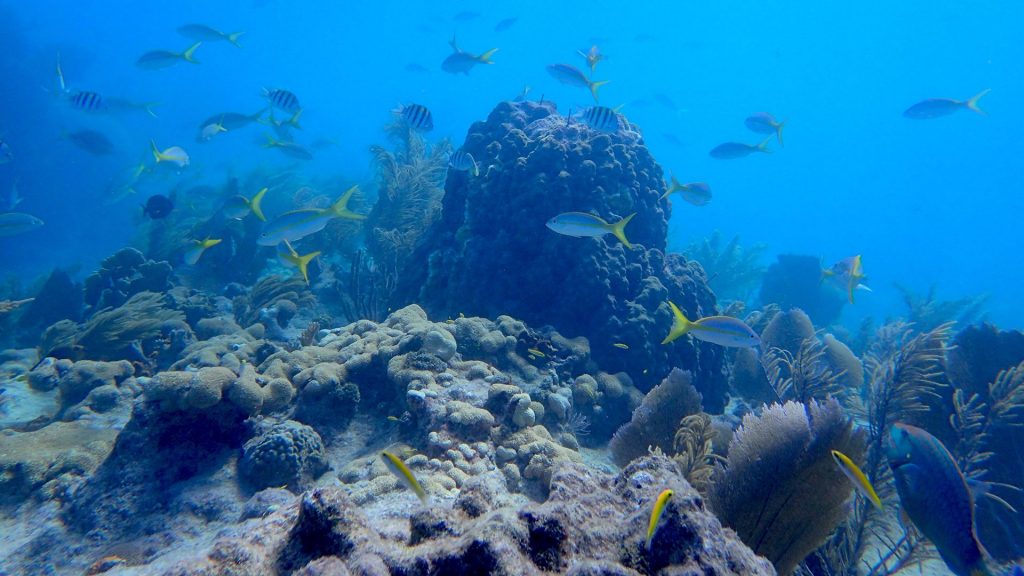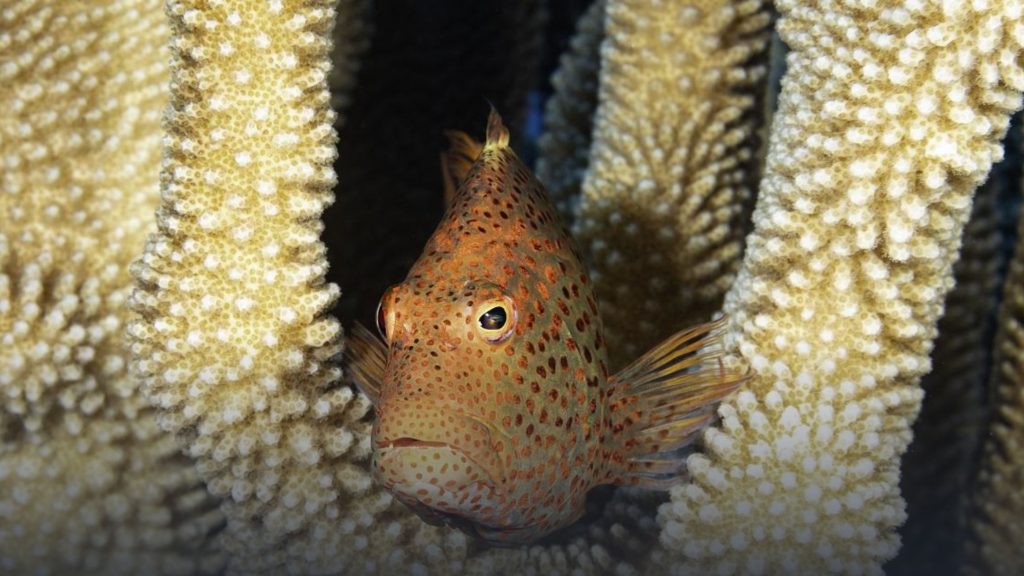News
PBS Nova Building Stuff: Change It!
The Reef Solutions team and their work in USVI took center stage in a recent episode of the PBS Nova series “Building Stuff.” Learn more about how we’re working to turn back the tide on reef declines with some unique and powerful tools. Watch now
Read MoreWHOI and the University of the Virgin Islands extend Partnership
WHOI and the University of the Virgin Islands (UVI) have entered into a Memorandum of Understanding (MOU) extending their working partnership in the exploration, study, and protection of the world’s oceans. READ MORE
Read MoreNew study from Woods Hole scientists suggests sound could help restore coral reefs (WCAI)
Purring fish and snapping shrimp. Croaks and pulses from a chorus of fish. Those are some of the noises that make up the soundscape of a healthy coral reef. Local scientists at Woods Hole Oceanographic Institution (WHOI) have been studying if these sounds could be a tool to help restore damaged reefs. Read more
Read MoreThere’s a difference between the sound of a healthy coral reef and a degraded reef (NPR)
Scientists working off the U.S. Virgin Islands found that the sounds of a healthy coral reef, played on underwater speakers, could encourage a degraded reef to regenerate. Listen now
Read MoreSoundtracks for coral babies may help save reefs (REUTERS)
As the world faces yet another mass coral bleaching this year, some scientists may have found a way to help degrading reefs by playing music to the ears of coral larvae. Watch now
Read MorePlaying thriving reef sounds on underwater speakers ‘could save damaged corals’ (Guardian)
Scientists working off the US Virgin Islands in the Caribbean found that coral larvae were up to seven times more likely to settle at a struggling reef where they played recordings of the snaps, groans, grunts and scratches that form the symphony of a healthy ecosystem. Read more
Read MoreScientists are using underwater speakers to help restore degraded coral reefs: Study (ABC)
Researchers have discovered a new method that could encourage the restoration of degraded coral reef populations, which have been declining around the world due to record-high marine temperatures. The sounds of a healthy reef could be used to encourage coral larvae to recolonize damaged or degraded reefs, according to a study published in the journal Royal…
Read MoreInnovative Techniques Provide New Means to Monitor Coral Reef Health
With coral reefs worldwide undergoing unprecedented stressors due to climate change and other human pressures, a large-scale application of innovative techniques shows promise for detecting the health condition of reefs. The techniques, which look at microbes and dissolved metabolites – i.e., chemicals that are produced during metabolism –were broadly applied to coral reefs off Florida…
Read MoreNFWF Announces $1.3 Million in Grants to Support Coral Reefs
The National Fish and Wildlife Foundation (NFWF) today announced $1.3 million in grants to support efforts to improve the health and resilience of coral reefs in Florida, Hawai’i, Guam, and America Samoa. The grants will generate $1.3 million in matching contributions for a total conservation impact of $2.6 million. The grants were awarded through the Coral…
Read MoreFish make music! It could be the key to healing degraded coral reefs
Fish make music! It could be the key to healing degraded coral reefs June 15, 2023 Do fish bay at the moon? The answer to that question may also point to a way to protect the ocean’s damaged coral reefs.
Read More



